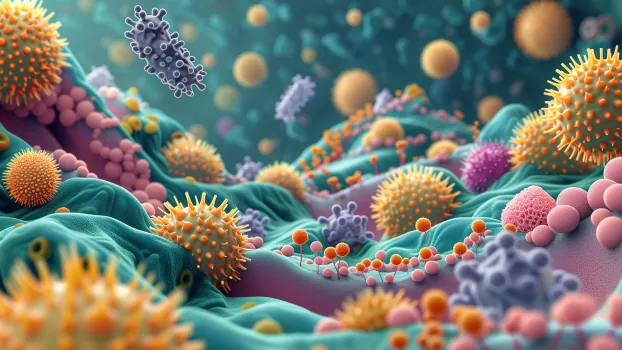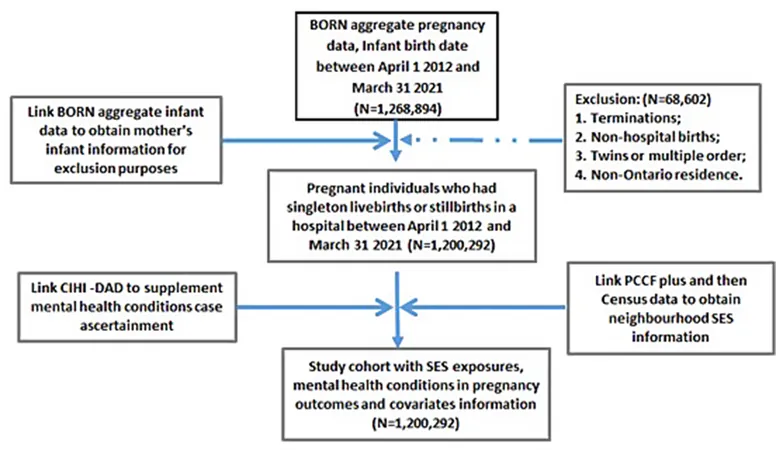
Revolutionary Discovery of Commensal Fungus that Enhances Anti-Parasitic and Allergy Responses
2024-12-20
Author: Charlotte
Revolutionary Discovery of Commensal Fungus that Enhances Anti-Parasitic and Allergy Responses
In a groundbreaking study published in *Nature*, scientists have unveiled a remarkable commensal fungus that could reshape our understanding of immune responses in the intestine, marking a significant leap in microbiome research. This discovery illuminates the intricate dance between host and microbe, opening the door to potential new therapeutic avenues against infectious and allergic diseases.
Within the human intestine, trillions of microbes—known collectively as the microbiome—play a crucial role in maintaining health by fostering immune resilience and defending the body against invasions. Despite their pivotal function, these microbes can also contribute to inflammatory and autoimmune conditions, underscoring the complexity of host-microbe interactions. This recent research, spearheaded by experts from the Research Institute of the McGill University Health Centre, emphasizes the need for deeper exploration of fungal organisms within the microbiome.
For years, studies have largely focused on the impacts of commensal bacteria on health. However, a team led by Irah King at McGill has taken a pioneering step by identifying the first true commensal fungus in laboratory mice: a yeast species named **Kazachstania pintolopesii (Kp)**. This remarkable fungus permanently resides in the mouse intestine, can be transmitted to offspring, and notably triggers an immune response that enhances resistance against intestinal helminths—parasitic worms that infect millions globally.
Dr. Iliyan Iliev, a leading researcher at Weill Cornell Medical College, underscored the significance of this finding, noting that Kp substantially boosts type 2 immune responses typically associated with allergies and worm infections. "Our experiments show that Kp colonization markedly increases resistance to helminth infections, particularly when the intestinal barrier is compromised," he explained. This is particularly fascinating as fungi generally incite a type 3 immune response, which is linked with fungal elimination but is also associated with autoimmune issues like multiple sclerosis.
This study is not just a triumph for Kp but provides a much-needed model for investigating host-fungal relationships, filling a critical gap where fungi have previously been treated as an afterthought in microbiome studies. Prof. King emphasized the relevance of Kp: “Our discovery highlights the essential role fungi must play in shaping intestinal immunity and reveals an often overlooked piece of the microbiome puzzle.”
Far-Reaching Implications
The implications of this research extend far beyond academic interest. Understanding how Kp enhances anti-helminth immunity may pave the way for novel therapeutic strategies targeting not just parasitic infections but also immune-related conditions like asthma. Further research could elucidate the multifaceted relationships between fungi, bacteria, parasites, and their hosts, enriching scientists' comprehension of how the microbiota influences overall health.
Additional studies are anticipated to reveal the significant impacts of fungi on gut immune responses, an area that has received insufficient attention until now. Uncovering how immunomodulatory properties of fungi influence health could revolutionize clinical approaches to managing diseases, providing fresh perspectives to age-old challenges.
The Serendipitous Discovery
Interestingly, this monumental discovery stemmed from unexpected observations of lower-than-expected worm loads in infected mice, prompting King and his team to delve into the role of the microbiome. By collaborating with Dr. Iliyan Iliev, who had independently identified Kp in his lab, the researchers established a profound link between fungal colonization and immune response.
The team deliberately propagated Kp within the mouse models to verify its influence on parasitic resistance, showing that Kp indeed enhances anti-helminth defenses. As Kaitlin Olsen, a graduate student involved in the study, noted, this research illustrates the dynamic interplay between host-fungal and host-helminth interactions—a trifecta that dictates immune output.
The King Lab is now exploring how early-life colonization of Kp potentially influences long-term immune development and susceptibility to diseases. Collaborations with the McGill Centre for Microbiome Research may shed light on potential correlations between Kp and human health outcomes, theoretically informing strategies for treating both parasitic infections and immune-mediated disorders.
This pivotal discovery not only underscores the importance of unexpected research findings but also beckons further inquiry into the largely underexplored realm of the fungal microbiome, changing the landscape of immunological research forever. As scientists continue to unravel these complex interactions, the future may hold groundbreaking insights for therapeutic interventions in a variety of health conditions.









 Brasil (PT)
Brasil (PT)
 Canada (EN)
Canada (EN)
 Chile (ES)
Chile (ES)
 España (ES)
España (ES)
 France (FR)
France (FR)
 Hong Kong (EN)
Hong Kong (EN)
 Italia (IT)
Italia (IT)
 日本 (JA)
日本 (JA)
 Magyarország (HU)
Magyarország (HU)
 Norge (NO)
Norge (NO)
 Polska (PL)
Polska (PL)
 Schweiz (DE)
Schweiz (DE)
 Singapore (EN)
Singapore (EN)
 Sverige (SV)
Sverige (SV)
 Suomi (FI)
Suomi (FI)
 Türkiye (TR)
Türkiye (TR)